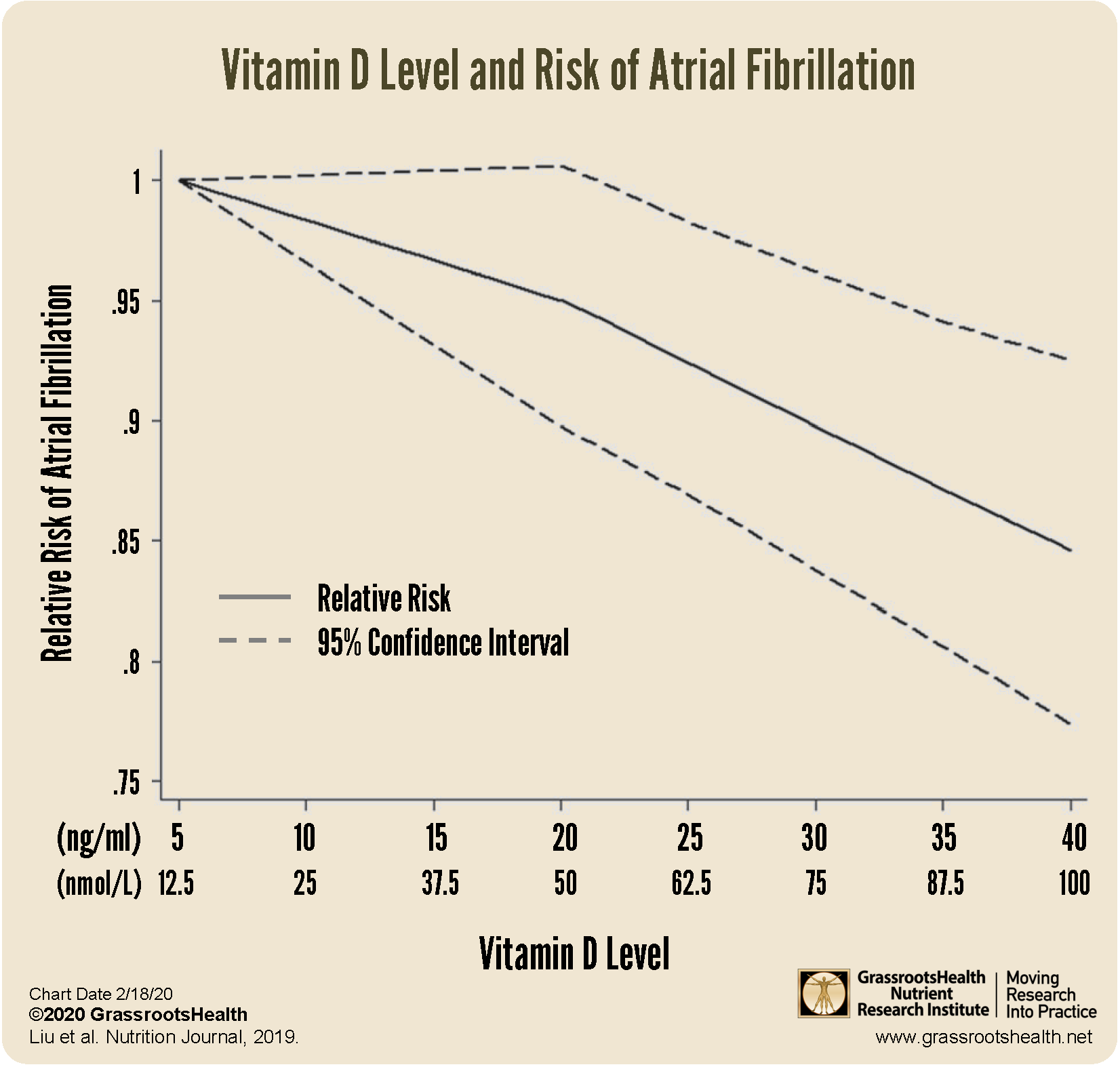Published on February 19, 2020
 It is heart health month! Last week we listed some important articles about the different roles of vitamin D, magnesium, and omega-3s for heart health, including one about magnesium’s relationship to atrial fibrillation. Atrial fibrillation is associated with an increased risk of heart disease, and is the most commonly seen form of cardiac arrhythmia in clinical practice. Could there also be a relationship between vitamin D and atrial fibrillation?
It is heart health month! Last week we listed some important articles about the different roles of vitamin D, magnesium, and omega-3s for heart health, including one about magnesium’s relationship to atrial fibrillation. Atrial fibrillation is associated with an increased risk of heart disease, and is the most commonly seen form of cardiac arrhythmia in clinical practice. Could there also be a relationship between vitamin D and atrial fibrillation?
A Recent Meta-analysis Says YES!
A meta-analysis published by Liu et al. looked at 13 studies with 6519 cases of atrial fibrillation among 74,885 participants in total. The goal of the analysis was to identify a dose-specific relationship between vitamin D level and the risk of atrial fibrillation (AF) or postoperative atrial fibrillation (POAF).
What did the study find?
The findings can be summarized as follows:
- Vitamin D deficiency (defined as <20 ng/ml or <50 nmol/L, p=0.008) and vitamin D insufficiency (21-29 ng/ml or 52.5-72.5 nmol/L, p=0.03) were both associated with an increased risk of AF
- For each 10 ng/ml (25 nmol/L) increase in vitamin D there was an additional risk reduction of 12% (p=0.03)
- Individuals aged 65 and older experienced a greater risk reduction in AF with higher vitamin D than younger individuals
- Increased vitamin D levels were also associated with a decreased incidence of POAF
As is clearly illustrated in the chart above, the relative risk of AF goes down as vitamin D levels go up.
Are you getting enough vitamin D to protect your heart?
Make sure you know your vitamin D level, and take steps to keep it within a target of 40-60 ng/ml or 100-150 nmol/L! Through GrassrootsHealth Nutrient Research Institute, you can also test your essential elements magnesium, copper, zinc and selenium, toxins such as lead, mercury and cadmium, as well as your omega-3 levels, inflammation levels and thyroid stimulating hormone (TSH) level. Find out your levels today! Log on to the test selection page (click the link below) to get your tests and see for yourself if your levels can be improved.
Make sure you track your results before and after, about every 6 months!
How can I track my nutrient intake and levels over time?
To help you track your supplement use and nutrient levels, GrassrootsHealth has created the Personal Health Nutrient Decision System called
For each specific supplement, you can track what days you take it, how much, and many other details. This will help you know your true supplemental intake and what patterns of use work for you to reach and maintain optimum nutrient levels. Check it out today!








